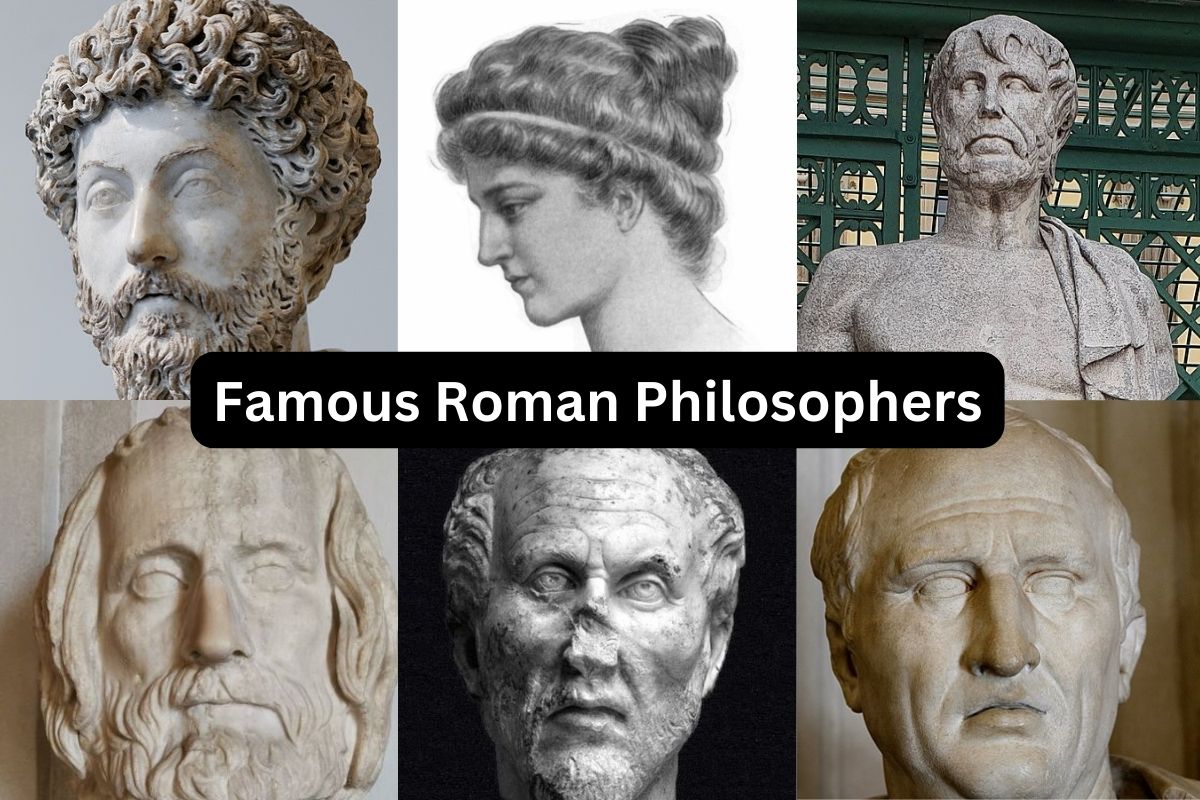Roman philosophy is a term used to describe the philosophical thought of the Roman Empire, which spanned from 27 BC to 476 AD. Roman philosophy was heavily influenced by Greek philosophy, but also incorporated elements of Roman law, religion, and culture.
The Roman Empire was home to many famous philosophers, including:
- Marcus Aurelius
- Cicero
- Seneca
- Plotinus
- Hypatia
All of whom made significant contributions to philosophy in areas such as ethics, politics, and metaphysics.
Many Roman philosophers were also statesmen, lawyers, orators, and writers who used their philosophical ideas to guide their actions and influence society.
They wrote treatises, letters, speeches, and poems, which provide insight into their philosophical views and the intellectual climate of the time.
Roman philosophy played a significant role in the development of Western philosophy and continues to be studied and debated by scholars and philosophers today.
Famous Roman Philosophers
1. Marcus Aurelius
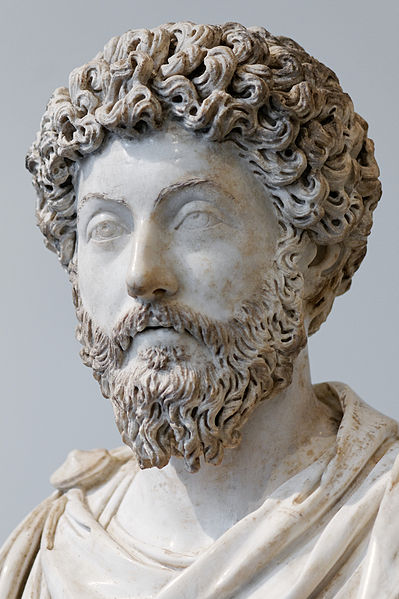
Marcus Aurelius (121-180 AD) was a Roman Emperor and philosopher who is best known for his book Meditations, a series of personal reflections on Stoic philosophy. He was born into a wealthy and influential family and was educated in philosophy by the prominent Stoic philosopher Junius Rusticus.
Marcus Aurelius became emperor in 161 AD, and during his reign, he faced many challenges, including wars, natural disasters, and political conflicts. Despite these difficulties, he remained committed to his Stoic principles, which emphasized reason, self-discipline, and the pursuit of virtue.
Also Read: Accomplishments of Marcus Aurelius
In Meditations, Marcus Aurelius reflects on the nature of the universe, the importance of living in the present moment, and the value of leading a virtuous life.
He emphasizes the need to accept the impermanence of life and the inevitability of death, and he encourages readers to focus on their inner lives and cultivate inner peace and tranquility.
Throughout his life, Marcus Aurelius demonstrated the Stoic virtues of wisdom, courage, justice, and self-control, and he remains a role model for many people today who seek to live a life of purpose and meaning.
His philosophy has influenced many thinkers and continues to be studied and debated by scholars and philosophers around the world.
2. Cicero

Cicero (106 BC – 43 BC) was a Roman philosopher, statesman, lawyer, and orator. He was born in Arpinum, Italy, into a wealthy and influential family and was educated in rhetoric, philosophy, and law.
Cicero is considered one of the greatest orators of all time, and his speeches are still studied today for their eloquence and persuasive power. He was also a prolific writer and philosopher who made significant contributions to the fields of ethics, politics, and rhetoric.
In his works, Cicero emphasized the importance of virtue, justice, and duty, and he argued that individuals had a moral obligation to act in the best interests of society as a whole. He believed that the pursuit of wisdom and the cultivation of virtue were essential for living a good life.
Cicero was an advocate for the Roman Republic and believed in the principles of democracy and freedom. He opposed the tyranny of Julius Caesar and later Mark Antony, and he was ultimately executed for his political views in 43 BC.
Despite his untimely death, Cicero’s ideas and writings continued to influence Western philosophy and politics throughout the centuries.
His works were studied by Renaissance humanists and Enlightenment thinkers, and his ideas on justice, law, and democracy continue to be debated and discussed by scholars and philosophers today.
3. Lucius Annaeus Seneca
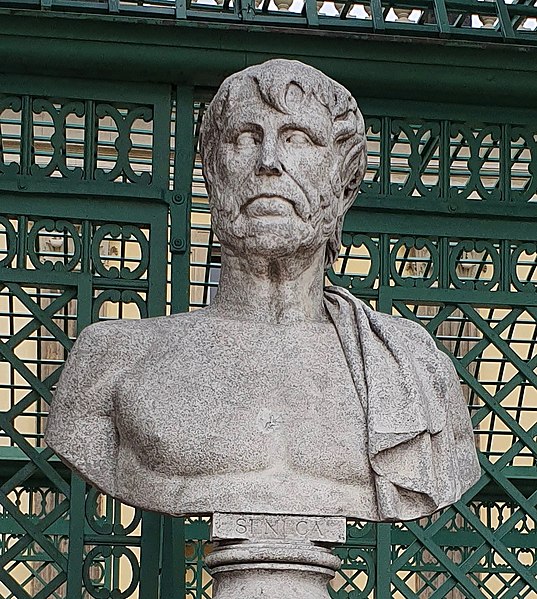
Lucius Annaeus Seneca (4 BC – 65 AD) was a Roman Stoic philosopher, statesman, and playwright. He was born in Cordoba, Spain, and was educated in Rome.
Seneca is known for his works on Stoicism, including Letters from a Stoic and On the Shortness of Life. In his writings, he emphasized the importance of reason, self-control, and the pursuit of virtue. He believed that the key to a good life was to live in harmony with nature and to cultivate a sense of inner peace and tranquility.
As a statesman, Seneca served as an advisor to the Emperor Nero, and he played a significant role in the politics of the Roman Empire. However, he was eventually forced to retire from public life and was later accused of plotting against Nero. He was ordered to commit suicide in 65 AD.
Despite his tragic end, Seneca’s philosophy has continued to influence thinkers throughout the ages. His ideas on the importance of self-control, the pursuit of virtue, and the acceptance of death have resonated with many people, and his works continue to be studied and debated by scholars and philosophers today.
4. Plotinus
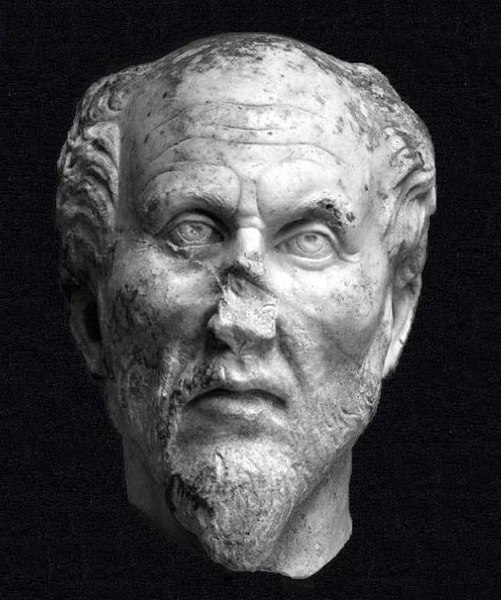
Plotinus (204/5 – 270 AD) was a Roman philosopher and the founder of Neoplatonism, a philosophical movement that sought to reconcile the ideas of Plato with the teachings of Aristotle and the Stoics.
Plotinus was born in Egypt, but he spent most of his adult life in Rome. He was deeply influenced by the works of Plato and sought to develop a comprehensive philosophy that would explain the nature of the universe and the human soul.
In his philosophy, Plotinus emphasized the importance of contemplation, or the act of turning inward to seek knowledge of the self and the divine. He believed that the ultimate goal of human life was to achieve union with the One, an ultimate reality that transcended the material world.
Plotinus’ philosophy was highly influential in the development of Western thought, and it inspired many later philosophers and mystics. His ideas on the nature of the universe, the human soul, and the divine continue to be studied and debated by scholars and philosophers today.
5. Hypatia
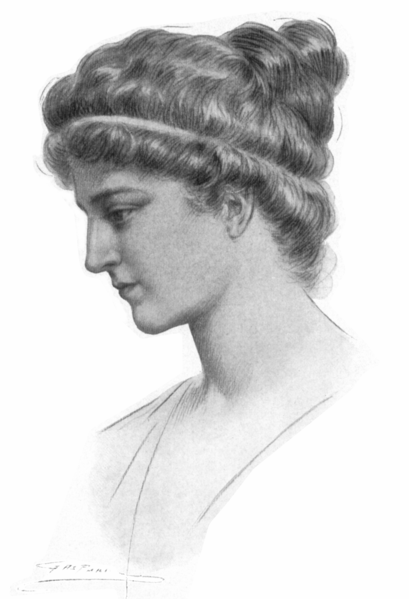
Hypatia (370/375 AD – 415 AD) was a Greek philosopher, mathematician, and astronomer who lived in Alexandria, Egypt, during the late Roman Empire. She was the daughter of the philosopher Theon of Alexandria and was educated in mathematics, philosophy, and astronomy.
Hypatia was a renowned scholar and teacher who taught at the Neoplatonic school in Alexandria, where she attracted many students and admirers. She wrote on a range of topics, including mathematics, astronomy, and philosophy, and she was highly respected for her intelligence and knowledge.
Hypatia’s life and work were cut short when she was brutally murdered by a mob of Christian zealots in 415 AD. Her death was a result of the political and religious tensions in Alexandria at the time, and her murder was seen as a symbol of the conflict between paganism and Christianity.
Despite her tragic end, Hypatia’s legacy as a pioneering female philosopher and mathematician has endured. Her contributions to mathematics and philosophy continue to be studied and celebrated, and she remains an inspiration to many people who seek to break down barriers and pursue knowledge and truth.
6. Nigidius Figulus
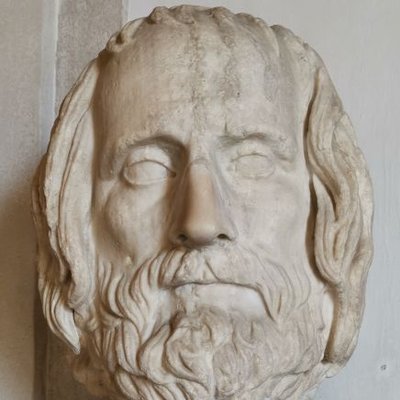
Publius Nigidius Figulus (98 BC – 45 BC) was a Roman philosopher, mathematician, and astrologer who lived during the late Roman Republic. He was born in Rome and was a member of the prestigious Nigidii family.
Nigidius was a polymath who wrote on a range of topics, including philosophy, mathematics, linguistics, and astrology. He was heavily influenced by the Greek philosopher Pythagoras and believed in the importance of mathematics and numerology in understanding the natural world.
Nigidius was also an astrologer who believed that the movements of the planets and stars could be used to predict future events. He was famous for his predictions, and many people sought his advice on matters ranging from politics to personal affairs.
Nigidius’ works have not survived, but he was highly respected by his contemporaries, including Cicero, who praised him as a brilliant philosopher and scholar. His ideas on the importance of mathematics and numerology in understanding the natural world influenced later philosophers and mathematicians, and his contributions to astrology helped to shape the practice of astrology in the Western world.
7. Cayo Plinio Segundo
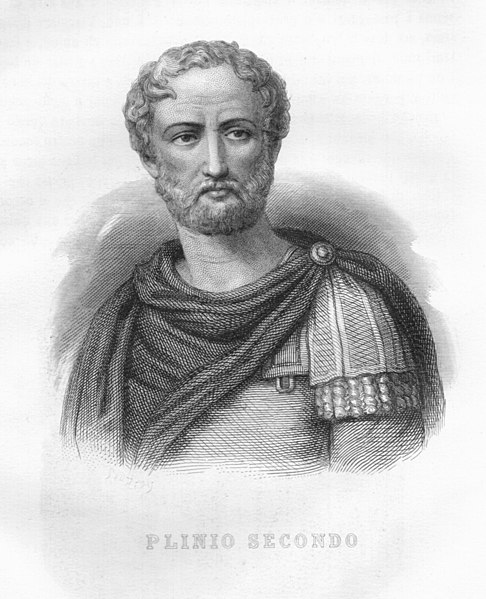
Gaius Plinius Secundus (23 AD – 79 AD), also known as Pliny the Elder, was a Roman philosopher, naturalist, historian, and writer. He was born in Novum Comum (modern-day Como, Italy) and was educated in Rome.
Pliny is best known for his encyclopedic work, Naturalis Historia (Natural History), which is a comprehensive survey of the natural world. The work covers a wide range of topics, including botany, zoology, mineralogy, and medicine, and it was one of the most influential works of its time.
In addition to his work on natural history, Pliny was also a historian who wrote extensively on the political and cultural history of Rome. He was a close friend of the Emperor Vespasian and served as a commander in the Roman army.
Pliny died while attempting to rescue people during the eruption of Mount Vesuvius in 79 AD. His works continue to be studied and admired for their breadth of knowledge and his attention to detail. Naturalis Historia remains an important reference work for scholars in many fields, and Pliny’s influence on the development of natural history and scientific writing has been significant.
8. Boethius
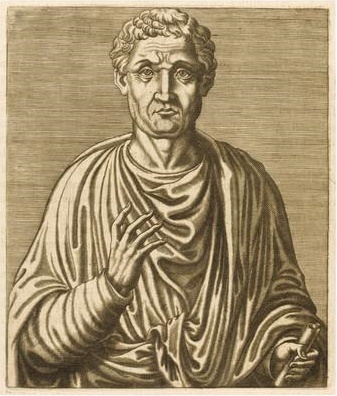
Anicius Manlius Severinus Boethius (480 – 524 AD) was a Roman philosopher, theologian, and statesman who lived during the early medieval period. He was born in Rome and was a member of a prominent family.
Boethius is best known for his book, The Consolation of Philosophy, which he wrote while he was imprisoned and awaiting execution. The book is a dialogue between Boethius and Lady Philosophy, who helps him to come to terms with his suffering and teaches him about the nature of happiness and the human condition.
In addition to The Consolation of Philosophy, Boethius wrote extensively on a range of topics, including logic, music, and theology. He was also a statesman who served as a consul and a senator under the Ostrogothic King Theodoric the Great.
Boethius’ works were highly influential in the development of medieval thought, and they were widely read and studied during the Middle Ages. His contributions to logic and music theory were particularly important, and his ideas on the nature of happiness and the human condition continue to be studied and debated by scholars and philosophers today.
9. Augustine of Hippo
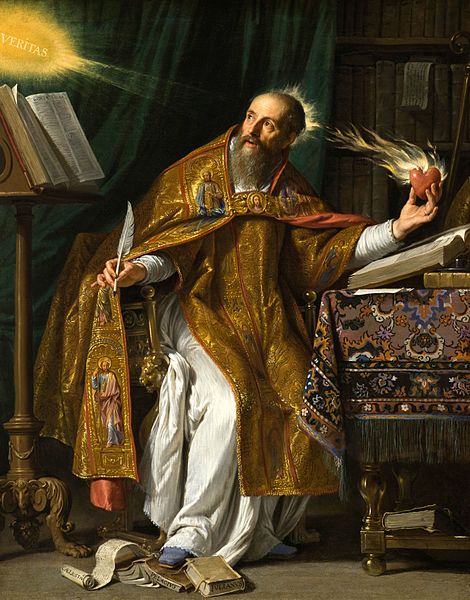
Augustine of Hippo (354-430 AD) was a Roman philosopher, theologian, and bishop who lived during the late Roman Empire. He was born in Thagaste, Numidia (modern-day Algeria) and was educated in rhetoric, philosophy, and theology.
Augustine is best known for his works on Christian theology, including The Confessions and The City of God. In his writings, he emphasized the importance of faith, grace, and salvation, and he argued that individuals could achieve spiritual enlightenment and union with God through prayer, meditation, and the pursuit of virtue.
Augustine was also a significant figure in the development of Western philosophy, and his ideas on metaphysics, ethics, and epistemology have influenced many later thinkers. He was a proponent of Neoplatonism and believed in the existence of an ultimate reality that transcended the material world.
As a bishop, Augustine played a significant role in the politics and culture of the Roman Empire. He was involved in debates on theology, morality, and church governance, and he was a key figure in the development of the Christian church.
Augustine’s works continue to be studied and debated by scholars and theologians today, and his ideas on faith, grace, and the nature of God have had a profound influence on Christian thought and Western philosophy.
10. Lucius Annaeus Cornutus
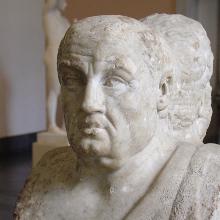
Lucius Annaeus Cornutus was a Roman philosopher and teacher who lived during the 1st century AD. He was born in Leptis Magna (modern-day Libya) and was a student of the Stoic philosopher Musonius Rufus.
Cornutus was known for his expertise in Stoic philosophy and was highly respected by his contemporaries for his knowledge and wisdom. He taught philosophy in Rome and was a tutor to the Emperor Nero.
Cornutus wrote extensively on a range of topics, including ethics, politics, and metaphysics. He was particularly interested in the Stoic concept of the Logos, or the divine reason that governs the universe, and he believed that the pursuit of wisdom and virtue was essential for living a good life.
Although many of Cornutus’ works have not survived, he was an influential figure in the development of Stoicism and his ideas were later incorporated into the works of later philosophers, including Epictetus and Marcus Aurelius.
